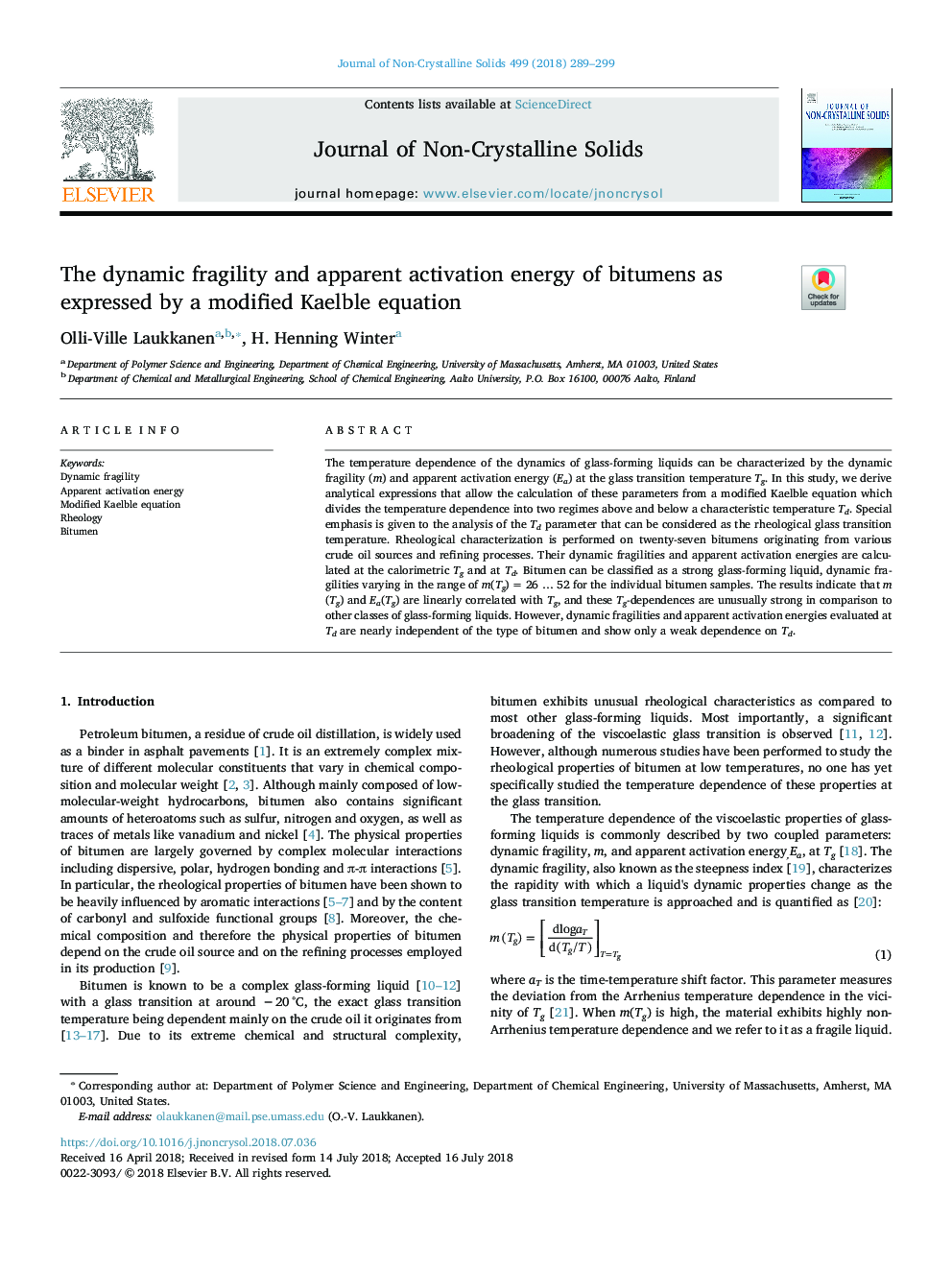| Article ID | Journal | Published Year | Pages | File Type |
|---|---|---|---|---|
| 7899562 | Journal of Non-Crystalline Solids | 2018 | 11 Pages |
Abstract
The temperature dependence of the dynamics of glass-forming liquids can be characterized by the dynamic fragility (m) and apparent activation energy (Ea) at the glass transition temperature Tg. In this study, we derive analytical expressions that allow the calculation of these parameters from a modified Kaelble equation which divides the temperature dependence into two regimes above and below a characteristic temperature Td. Special emphasis is given to the analysis of the Td parameter that can be considered as the rheological glass transition temperature. Rheological characterization is performed on twenty-seven bitumens originating from various crude oil sources and refining processes. Their dynamic fragilities and apparent activation energies are calculated at the calorimetric Tg and at Td. Bitumen can be classified as a strong glass-forming liquid, dynamic fragilities varying in the range of m(Tg)â¯=â¯26 ⦠52 for the individual bitumen samples. The results indicate that m(Tg) and Ea(Tg) are linearly correlated with Tg, and these Tg-dependences are unusually strong in comparison to other classes of glass-forming liquids. However, dynamic fragilities and apparent activation energies evaluated at Td are nearly independent of the type of bitumen and show only a weak dependence on Td.
Related Topics
Physical Sciences and Engineering
Materials Science
Ceramics and Composites
Authors
Olli-Ville Laukkanen, H. Henning Winter,
